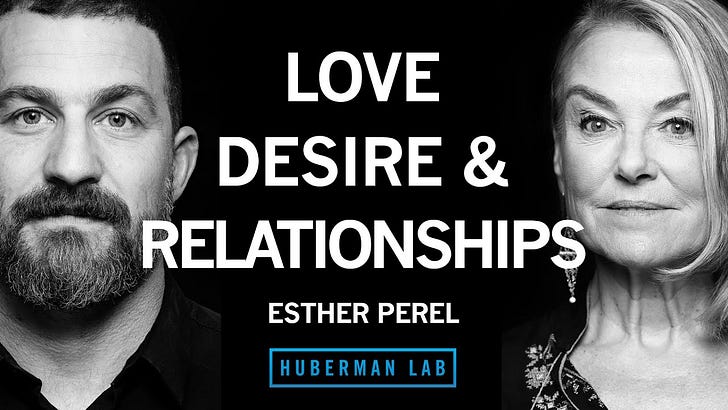Esther Perel on Relationship Conflicts & Healing | Huberman
The Hidden Fight
When couples argue about seemingly trivial matters - the closet door, cat litter, or household chores - they're often fighting about something much deeper. Take, for instance, when a partner's request to close a closet door triggers memories of a controlling military father, transforming a simple ask into a power struggle. Meanwhile, the other partner's reaction stems from childhood abandonment issues, interpreting resistance as confirmation of their deepest fears of being alone. Understanding relationship conflict patterns is crucial for breaking these cycles.
Facing the Pain
One of the most challenging aspects of relationship repair is confronting the hurt we've caused others. Many struggle to acknowledge the depth of pain they've inflicted, often responding with denial: "I didn't think it would hurt you that much." This dissociation serves as a defense mechanism, but true healing requires facing the consequences of our actions. Sometimes, it's easier to face someone's anger than their hurt.
The Art of Apology
Not all apologies are created equal. The most effective ones demonstrate that we've truly stepped outside ourselves to understand the other person's pain. Many apologies fail because they come from a place of personal guilt or shame rather than genuine care for the hurt party. The focus should be on restorative justice rather than self-preservation. Learning effective conflict resolution can help couples navigate these delicate conversations.
Relationship Readiness
A powerful question to ask yourself is: "Knowing yourself as well as you do, what makes it hard to live with you?" Nobody enters relationships perfectly prepared. Everyone has relationship issues they'll need to address - the only question is with whom. We're all works in progress, and many relationship problems aren't meant to be solved but rather managed as ongoing paradoxes.
Beyond the Personal
These relationship dynamics extend far beyond intimate partnerships. The same patterns we see in couples manifest in broader societal conflicts - between political groups, nations, and communities. Understanding these fundamental human dynamics isn't just about improving our personal relationships; it's about evolving our ability to connect, love, and create peace at all levels of human interaction.



